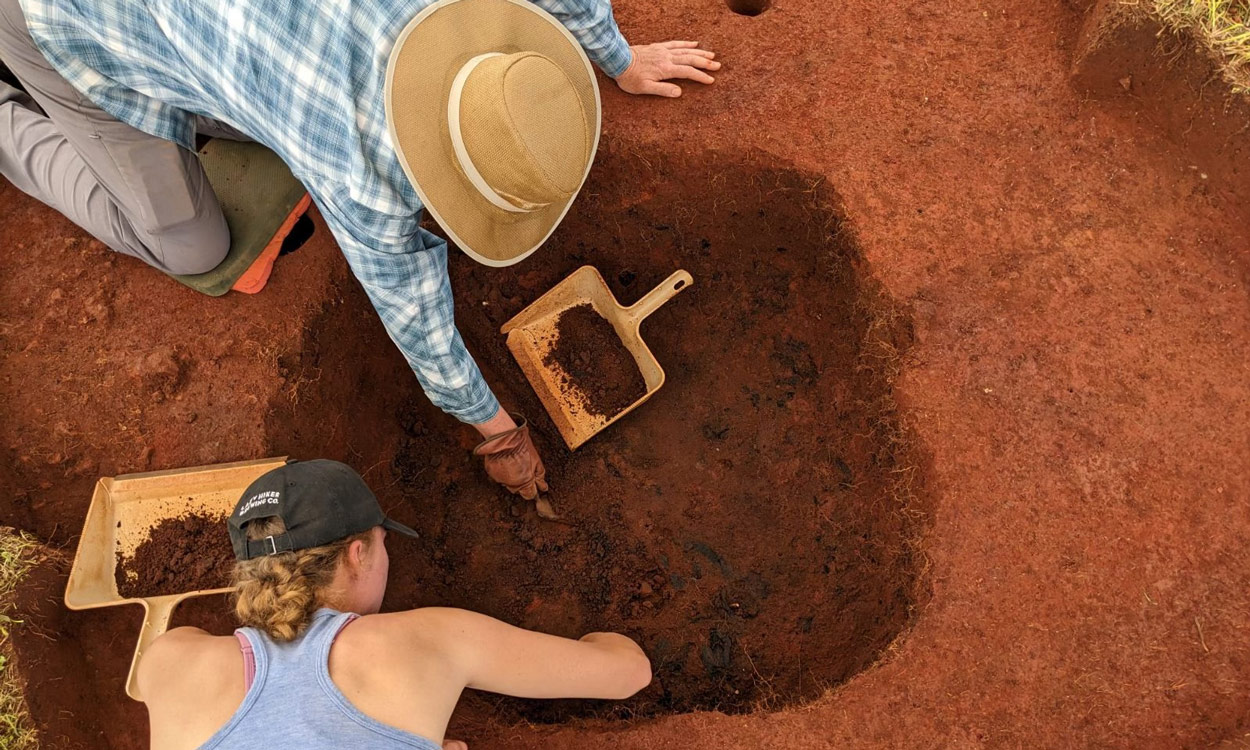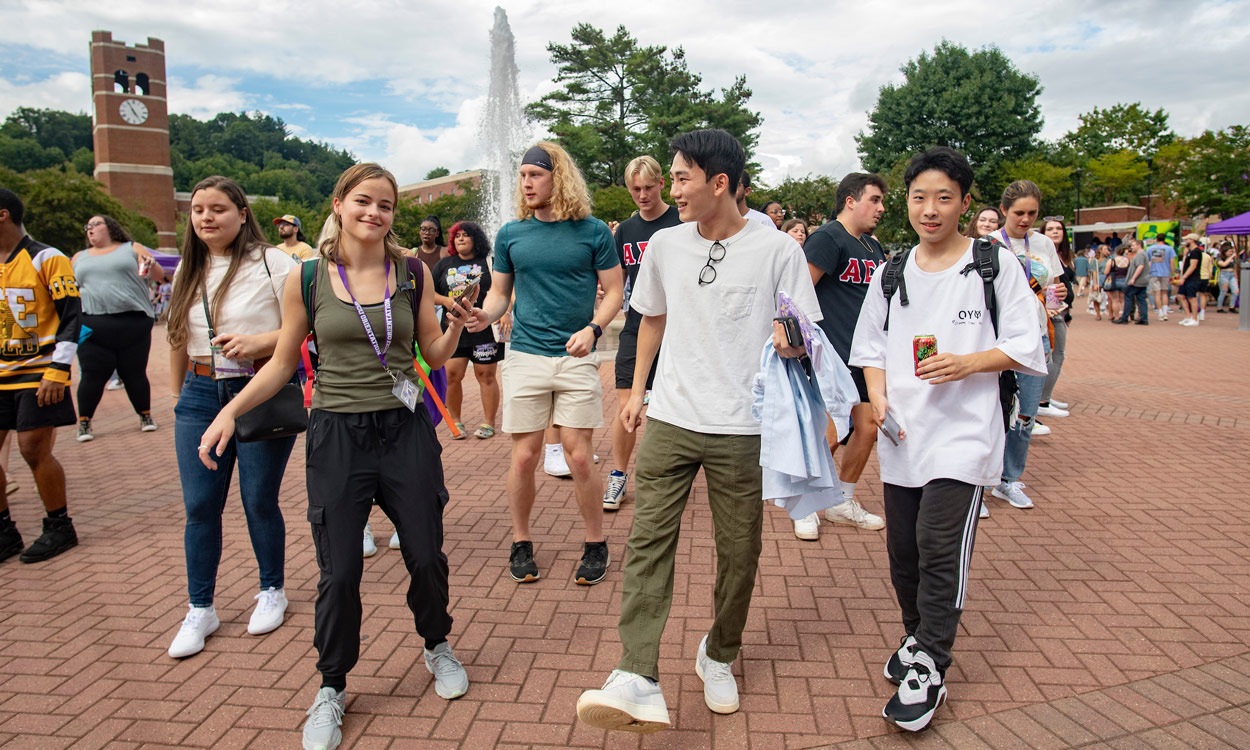Communication sciences and disorders student travels to Thailand for Therapy Abroad
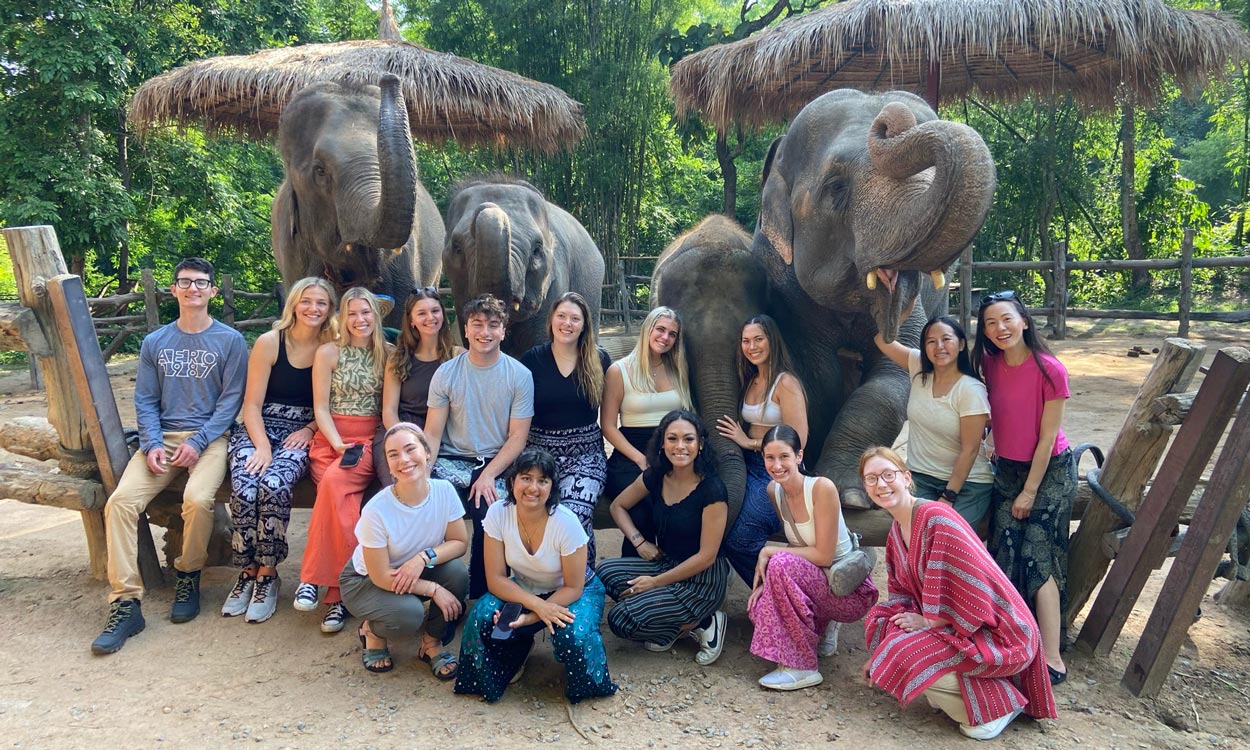
Sam Hubbard (far left), a rising senior in the communication sciences and disorders program, recently went on a two-week trip to Thailand intended for undergraduate or graduate students interested in pursuing a career in speech-language pathology.
By Julia Duvall
Sam Hubbard, a rising senior in Western Carolina University’s communication sciences and disorders program, recently went on a two-week trip to Thailand as part of Therapy Abroad, an international program that provides speech language services to children through group travel and faculty-led programs.
“The main focus of the Therapy Abroad program is to provide speech services in the local area, specifically at the Rajanagarindra Institute of Child Development in Chiang Mai, Thailand,” Hubbard said. “Our group of 13 specifically worked with the children on augmentative/alternative communication therapy during the three-day tykes camp we held for them and their caregivers. This allowed us to work with them in-person and give the caregivers a daily treatment plan to work on at home.”
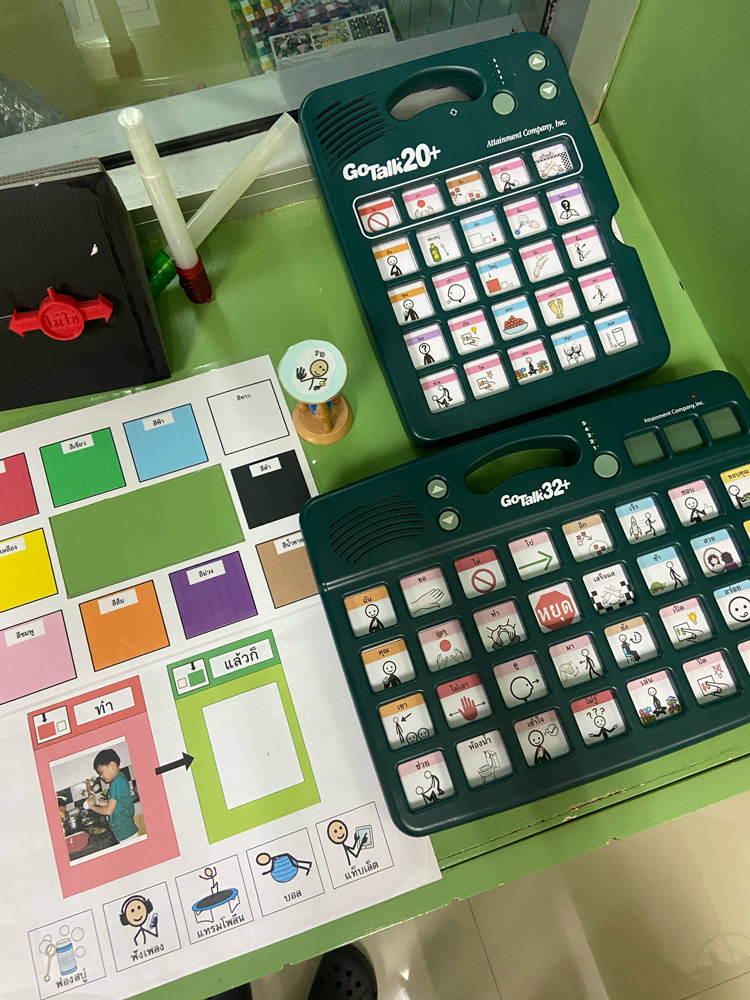
The trip that Hubbard, who is from Fayetteville, went on was a specialized two-week program offered in Thailand and intended for undergraduate or graduate students interested in pursuing a career in speech-language pathology. The program collaborates with government organizations, non-governmental organizations, private clinics, universities and charitable organizations to bring services to children in Chiang Mai.
RICD is a specialized children’s hospital providing medical services to children with developmental delays and mental health disorders such as autism, ADHD, cerebral palsy, learning disorders and intellectual developmental disorders. RICD also promotes and provides support for academic and technological research and development of related agencies, in order to improve child development and mental health.
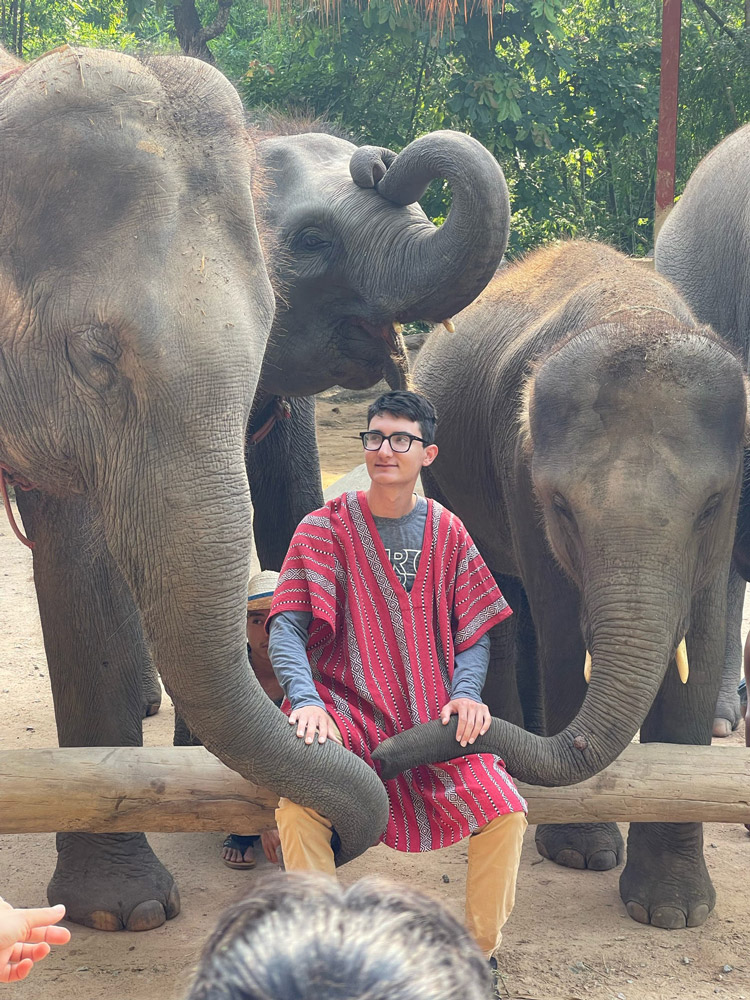
Bluedot, an organization based in Thailand, collaborated with Therapy Abroad to set up the trips and activities the group went on during the two-week stay outside of clinic time.
“We ate at a lot of great places, did some sightseeing and experienced some traditional Thai cultural activities,” Hubbard said. “We got to go to an elephant sanctuary, see the temples and visit local markets. Despite how busy we were, we did get some free time to explore with our fellow students in small groups.”
During the two weeks, students spent Monday through Friday at the local clinics preparing and implementing the AAC-focused tykes camp. In the afternoons, students participated in training and discussions as well as spent time in local markets and stores purchasing locally sourced materials to construct AAC systems. In the evenings, students were mentored through the AAC evaluation and report-writing process.
“The most rewarding part of the trip was working with the children at the tykes camp,” Hubbard said. “We got to see actual progress in just a matter of days. The children were getting more comfortable with the exercises and having their caregivers there learning how to support the children in these therapies was wonderful. Experiencing a different culture and getting to learn some of the language was really cool also. I would like to keep learning the language and more about Thai culture.”
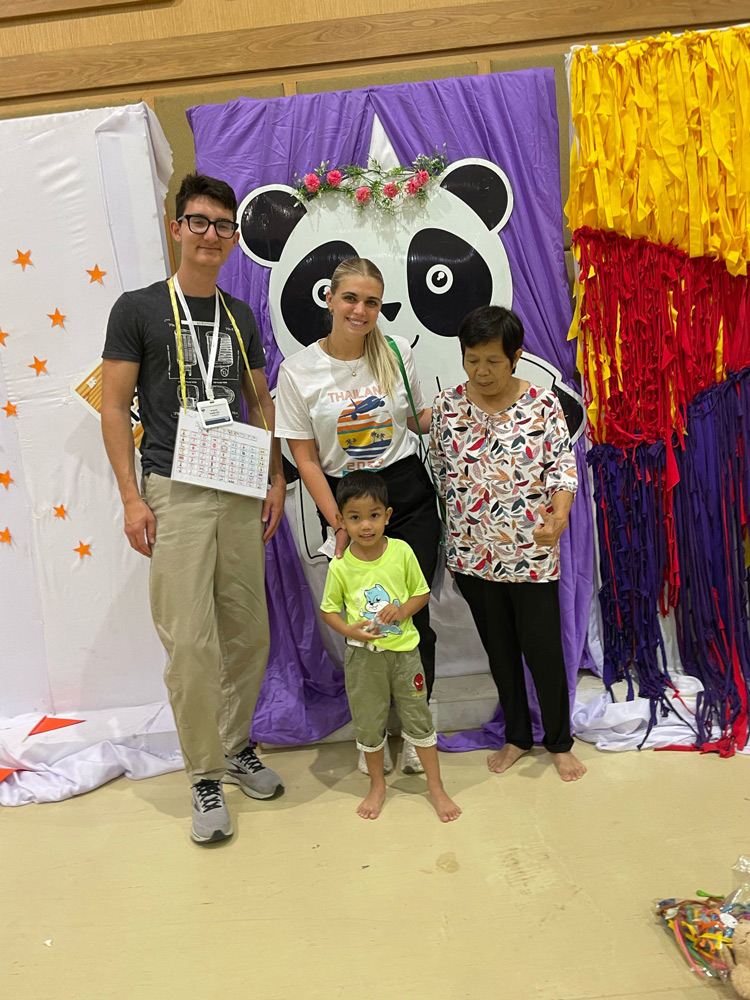
Hubbard also shared the differences between access to speech-language pathology services in the U.S. compared to Thailand.
“The vast majority of speech-language pathologists are located in Bangkok, Thailand, and they are only around 116 of them,” Hubbard said. “The other few pathologists in Thailand are spread out in different parts of the country, so what people must do if they need speech services is either move to Bangkok or travel a long way to get access to the services. We had a total of eight children who participated in the tykes camp and some of them had to travel quite a distance to get to the camp. It makes me grateful for the access we have back home and inspires me to help make this therapy more accessible around the world.”
